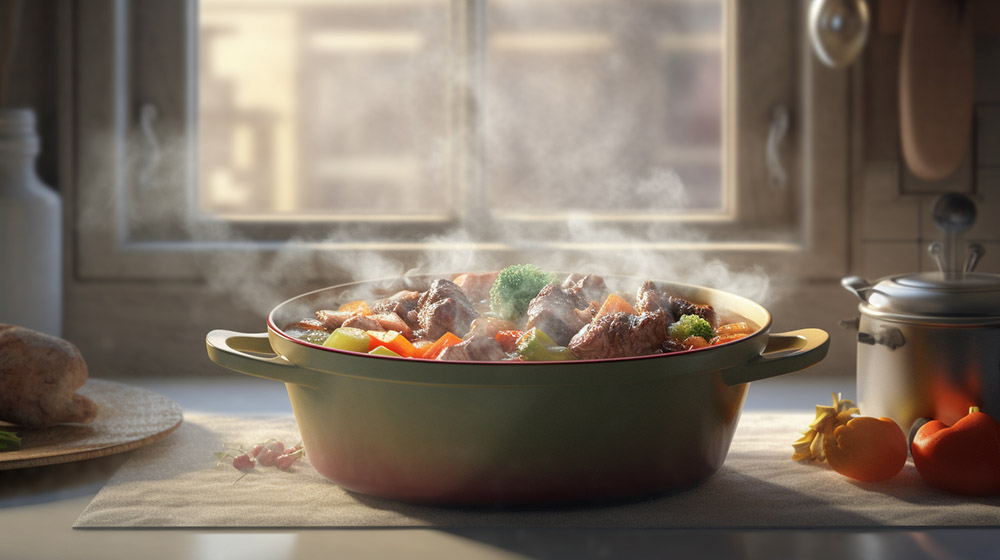When it comes to heartwarming meals, beef stew often takes the top spot. The medley of tender beef, hearty vegetables, and a rich gravy are simply irresistible. But what if you’ve made too much? Or what if you want to prepare in advance for stress-free meals during the week? The question arises: Can you freeze beef stew? The answer is a resounding yes. Let’s explore the best ways to do so.
🧊 Freezing
Can You Freeze Beef Stew?
Absolutely, beef stew freezes quite well. The ingredients used in beef stew – meat, root vegetables, and gravy – are all freezer-friendly.
Does Freezing Change Texture?
Freezing won’t significantly change the texture of the beef or vegetables. However, it’s important to note that potatoes may become slightly grainy upon thawing due to their water content, but they still retain their taste.
How to Freeze Beef Stew: Step by Step Guide
- Allow the stew to cool completely before freezing. This will prevent ice crystals from forming on the top.
- Portion the stew into freezer-safe bags or containers. Individual portions make it easier to thaw and reheat the stew later.
- Leave a little space at the top of the container because the stew will expand as it freezes.
- Seal the containers properly and label them with the date.
Can You Freeze Uncooked Beef Stew?
While you can freeze the components of a beef stew separately before cooking, it’s typically more convenient to cook the stew first and then freeze it. This ensures all the flavors have melded together beautifully.
How Long Can You Freeze Beef Stew?
With proper storage, frozen beef stew can retain quality for up to 3 months. It won’t spoil after this point, but it may start to lose its flavor and texture quality.

🫠 Defrosting
Refrigerator Thawing
For best results, thaw frozen beef stew in the refrigerator. This method is the safest and will help maintain the stew’s texture and flavor.
Stovetop Thawing
In a rush? Thaw and reheat your beef stew directly on the stovetop. Keep the heat low and stir often to prevent the stew from scorching.
Deep Freeze Dilemmas: Further Queries Answered
5 Tips for Freezing Beef Stew
- Cool your stew completely before freezing to prevent condensation.
- Freezing in individual portions makes thawing and reheating more convenient.
- Use airtight, freezer-safe containers to keep the stew fresh and prevent freezer burn.
- Always label your containers with the date. This helps you track how long you’ve stored the stew.
- When reheating, add a little water or broth if the stew seems too thick.
Do Beef Stew Freeze Well?
Beef stew, in general, freezes exceptionally well. The hearty ingredients maintain their texture and flavor, making it a great make-ahead meal.
Can You Refreeze Beef Stew?
It’s not recommended to refreeze beef stew once it’s been thawed. The fluctuation in temperatures can degrade the texture of the stew and can potentially lead to bacterial growth.
Conclusion
With these tips and guidelines, freezing beef stew becomes a breeze. So the next time you make a large batch of this comforting dish, remember you can always freeze it for a later date. Enjoy the convenience and savor the taste!
